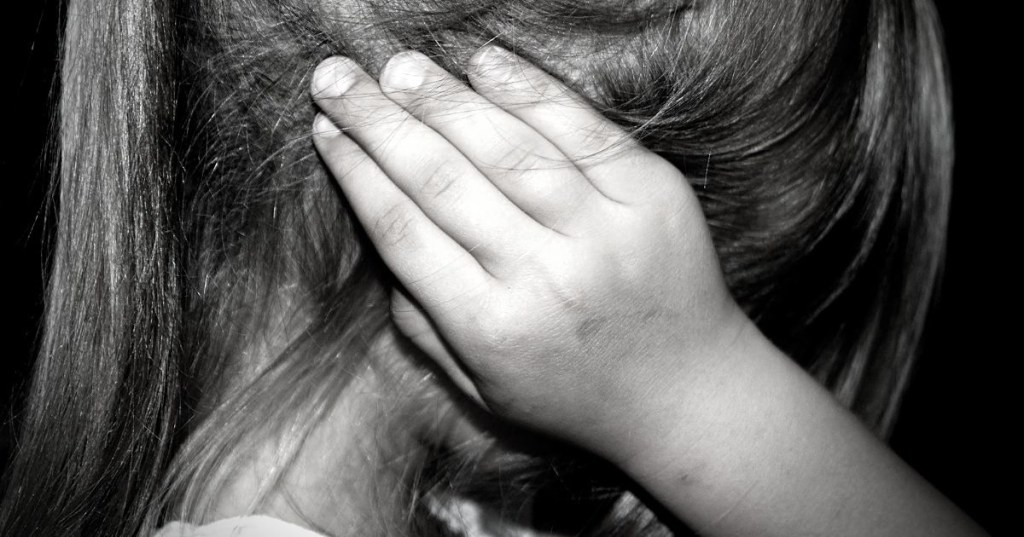From the outside looking in, I had the picture perfect childhood. I lived in a four-bedroom house with a dog and a fenced-in backyard. I wore department store clothes and Stride Rite kicks, and I had the latest and greatest clothes and toys. From Barbie and Cabbage Patch Dolls to a Nintendo, Super Nintendo, Gameboy, and SEGA Genesis, I had it all.
I also had two loving* parents. My mother and father attended all of my productions and plays in school. They never missed a single honors luncheon and saw me get all of my attendance awards.
But behind closed doors, things were different. They were different, and my mother was a nightmare. She mentally, emotionally, and verbally abused me for years.
Of course, I didn’t know it. Not initially. Not until the damage was already done, but that is because—like most abusers—her mistreatment began as manipulation. She loved me, coddled me, and held me close. She would say things like “Mommy loves you. Mommy needs you. You don’t want Mommy to be sad, do you? Do this and I’ll be happy.”
She made me believe I couldn’t trust anyone. My childhood was full of silence, shame, and secrets. She separated me from my friends. She told me I couldn’t go out or have playdates. I was never allowed to have company over, and then she began putting me down.
I was bad. I was stupid. I was a “disappointment” and a “failure.”
Things only got worse. Sometime between my twelfth birthday and my thirteenth, the yelling began. Both I and my house shook from the noise and fear. By my fourteenth birthday, my mother’s insults were laced with expletives. Sometimes she tried to hit me or hold me down, and because I was groomed from a young age, I felt helpless.
I was scared, isolated, depressed, and alone. I lived in fear. I walked on eggshells in my prison, aka my home.
The good news is that (eventually) I got out. When I graduated high school, I moved myself and my meager belongs 100 miles and two states away. But the damage was done. At 36, I still struggle with self-confidence. Trust is an issue, as is my reaction to criticism—actual and implied—and I have very few friends.
But my abusive childhood also taught me a lot about parenting. I know what my kids need, what they want, and what they deserve, and for that I am thankful. I consider myself #blessed.
Make no mistake: I know that sounds odd and twisted, and in a way it is, and yet it also makes perfect sense because my broken and neglectful childhood made me a mother who loves deeply and fully. I wear my heart on my sleeve. I give my children what they need most: my time, ear, patience, and support.
My broken childhood taught me to lead by experience. I, for example, have trust issues because my trust was betrayed (and because I was told to keep others beyond my reach), so I make it a point to push my own boundaries when my children are around. I want them to see what I didn’t. I want them to rely on others in a way I never could.
And my broken childhood taught me what I shouldn’t say. I rarely use the words “can’t” or “don’t.” I praise my daughter on a regular basis. I focus on her achievements and not her failures or shortcomings, and when she “acts up” or makes a mistake I choose my words wisely. I seperate her feelings from her behaviors, i.e. “It is okay to be upset. I would be frustrated too. But acting out is not a healthy way of dealing with your feelings.”
I also tell her how I am feeling. Why? Because growing up I was told things like “stop crying” and “calm down” and these directives didn’t just cause me pain and anxiety, they kept me from processing my emotions.
I still struggle to say much more than “I’m fine” or “I’m okay.”
So while I am not happy I grew up in a distant home, a neglectful home, and an emotionally and verbally abusive home, I am happy that my daughter will not because my experience taught me what my children need and don’t need. My experience taught me how I can—and why I need to—break the cycle.
This article originally appeared on 9.4.20

































